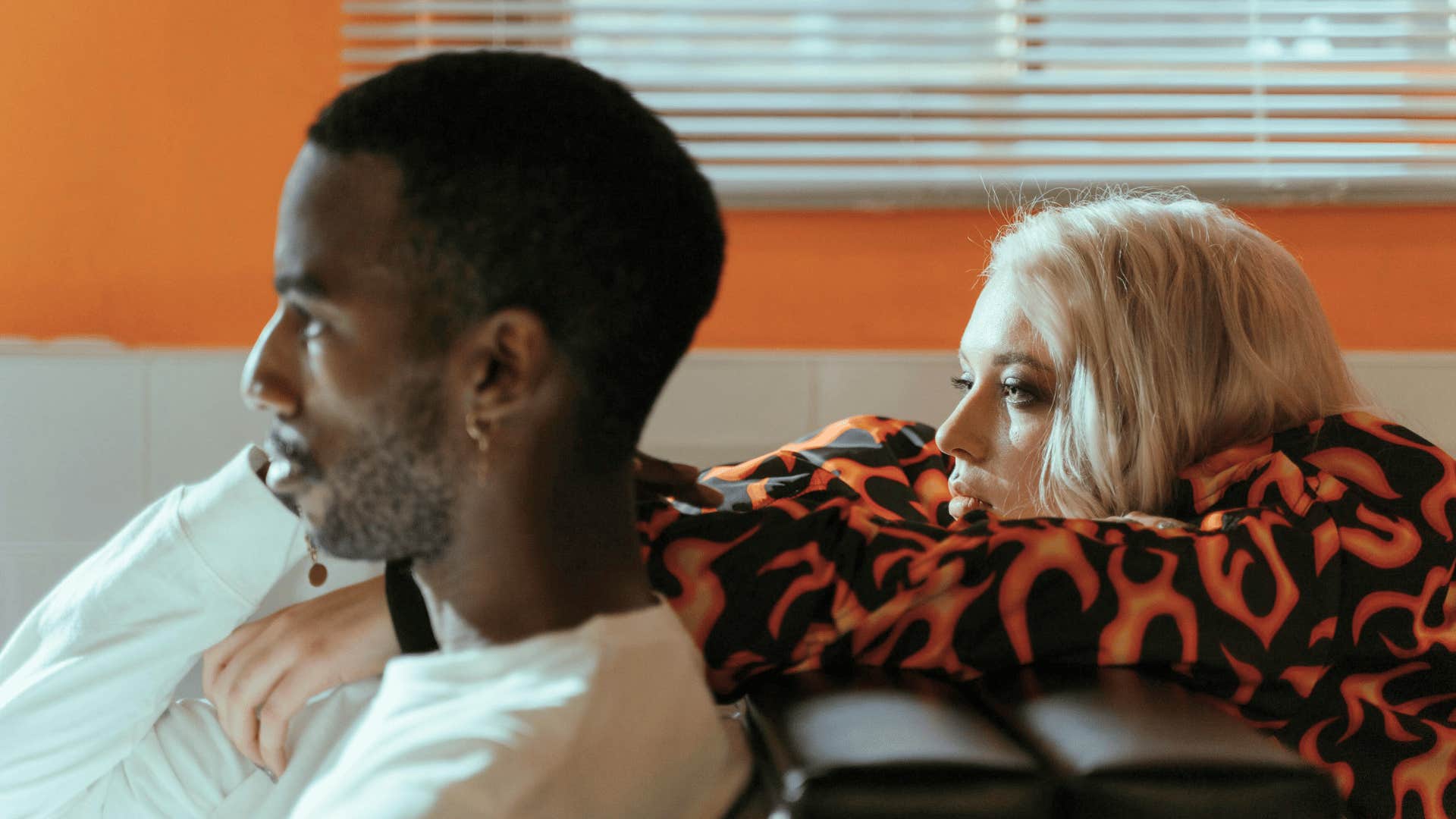6 Sneaky Signs You Have Profound Emotional Anguish
And you might not even know it.
 Fiba Filip / Shutterstock
Fiba Filip / Shutterstock Emotional trauma occurs when a negative event(s) occurs that overwhelms our coping abilities. So, for most of us, it’s fairly obvious that we have emotional trauma.
When we were children, our coping abilities were insignificant, so even small negative events that wouldn't shake our structure as an adult could have left some profound emotional scars on our psyche.
If you aren't sure if this applies to you, there are a few hidden indicators you have hidden trauma that you haven’t realized and accepted.
Here are 6 sneaky signs you have profound emotional trauma
1. You're 'done' with relationships
 Anna Shvets / Pexels
Anna Shvets / Pexels
Many people claim to be done with finding love, but it’s just not true. Can you be "done" with food? No, you’d physically starve yourself. Just like that, you simply can’t be "done" with relationships. You’d emotionally starve yourself.
Loving and feeling loved are basic human needs. You cannot just be "done" with them. It’s simply your subconscious taking extravagant measures in order to avoid the slightest possibility of emotional pain.
The reason? Because you’ve been emotionally traumatized in your past relationships. The wise thing here would be to stop being "done" with relationships, and introspect, understand, and cure your emotional trauma.
2. You build a series of short-lasting relationships
 Alex Green / Pexels
Alex Green / Pexels
You get into a relationship that’s more than just casual, but it doesn’t last too long. Soon, you break things off, and then you find yourself looking for a new fling. And the cycle repeats itself several times.
You might give yourself reasons for this sort of behavior: “I’m just not feeling it,” “He/she did this/that,” or “The chemistry is there, but the timing is not right.” However, it’s possible that this behavior is a sign of avoiding dealing with your emotional trauma.
You get into relationships to feel the high, but then end things soon enough because you don’t want to allow yourself to get in a position to get hurt. So, instead of allowing the possibility of getting hurt by the other person, your subconscious self chooses to hurt them instead. And you do that by (subconsciously) looking for even mildly plausible reasons to end things.
3. You always move way past the due point of a breakup
 Gustavo Fring / Pexels
Gustavo Fring / Pexels
In any relationship, there comes a time when you know deep down that it’s time to break up. But you move past these points. Your subconscious mind ignores the feeling, while your conscious mind reinforces that ignorance.
It might seem like a normal human reaction to want to not give up on love. However, it’s entirely possible that it’s a sign of emotional trauma you're not quite aware of.
This type of emotional trauma is more difficult to notice. That’s because it’s the kind that’s rendered inactive or latent by the presence of the tag of your current relationship.
It’s as if your body has deep physical pain, and the pain is relieved with pressure. The deep physical pain is your emotional trauma, and your current relationship provides that pressure that relieves that pain.
And so, your subconscious mind doesn’t want you to break up because it knows that all your past emotional trauma will reactivate.
4. You always need people around because you're afraid of being alone
 RDNE Stock project / Pexels
RDNE Stock project / Pexels
People and the accompanying chit chat can be a powerful distraction from your emotional pain. That’s why some people just can’t be alone and constantly need people around them.
Such individuals hang out with many different people. They’ll be around just about anyone because they’d rather not be alone. In many cases, they hang around with people whose guts they claim to hate.
Imagine their pain — and the consequent quest to avoid solitude — that they prefer hanging out with people they dislike, rather than facing their own thoughts and demons.
5. You're happy when you see your ex suffer
 Andrea Piacquadio / Pexels
Andrea Piacquadio / Pexels
You can tell a lot about a person's emotional status — specifically regarding their past relationships — depending on how they react when they hear about their ex’s life.
Certain people get low-key happy when they hear that their ex is suffering in some way or another. And it’s not rocket science. They’re happy because their ex must have hurt them in a profound way, and they still carry the trauma.
6. You seek validation from a specific person or a group of people
 cottonbro studio / Pexels
cottonbro studio / Pexels
Many people suffer from trauma as a result of bullying and disrespect in high school. But, later in life, they may find that those bullies reach out to them to apologize and compliment them on their achievements.
It feels great because validation always feels great. But there's always validation from other sources, particularly those who have been supportive from the beginning.
While their validation may move those individuals more than other events, objectively, these other sources of validation should actually mean more — because they’re bigger.
On introspection, it might just be that you're carrying emotional trauma from your school days. Because of that trauma of not being accepted, you sought validation, at least subconsciously. And when you finally got it, it meant more than you would have expected.
If you or somebody that you know is experiencing a mental health crisis, there is help available. Call SAMHSA’s National Helpline at 1-800-662-HELP (4357), or text "HELLO" to 741741 to be connected with the Crisis Text Line.
Akshad Singi, M.D. is a writer whose work has been published in Better Humans, Mind Cafe, Medium, and more.

